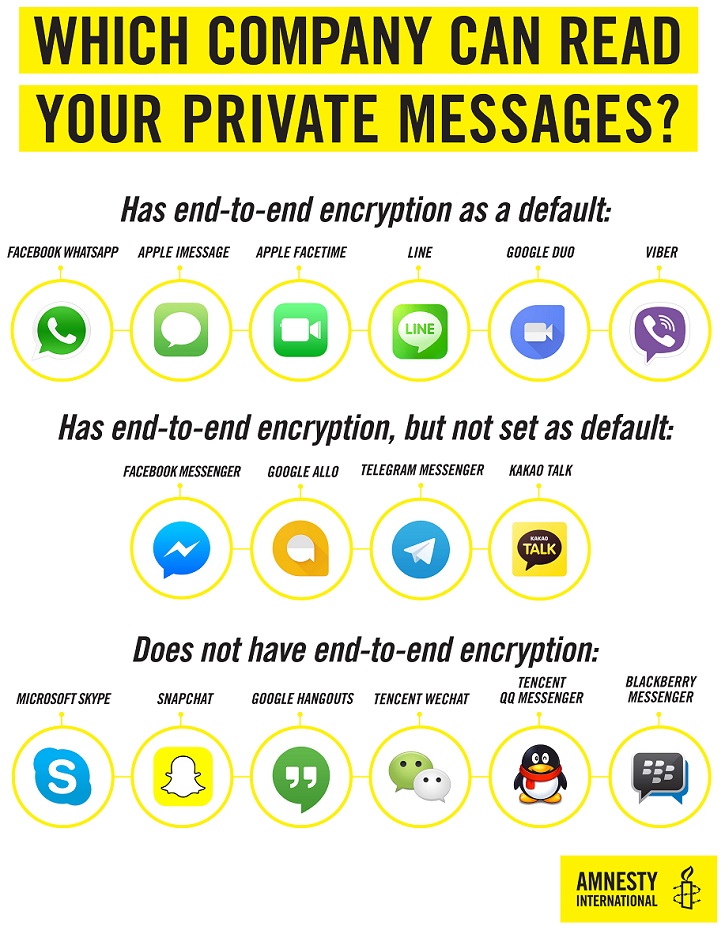Snapchat and Skype, two of the world’s most widely utilized social media and messaging applications, have been criticized by Amnesty International for the lack of basic privacy protections for users.
Amnesty International is a reputable human rights organization with over 7 mln members and supporters worldwide. The non-profit institution regularly publishes extensive research on online privacy and how users are affected by some applications that are vulnerable to data theft and security breaches.
In a recent report, the research team at Amnesty evaluated and analyzed the security measures of virtually every messaging application that are used by mlns of users on a daily basis.
It was discovered that Skype, Snapchat, Google Hangouts, WeChat and QQ messenger did not even have end-to-end encryption, let alone additional privacy and security measures.

WeChat’s P2P Payment System
Skype and Snapchat have been criticized before for their lack of privacy features. Skype in particular was involved in controversial cases after it was revealed that Skype messaging and call data are being sent to law enforcement for surveillance.
However, WeChat’s lack of an end-to-end encryption was a shock to hundreds of millions of users who also utilize WeChat to send P2P payments across the globe.
At Money 20/20 conference, WeChat announced that 420 mln users sent 32 bln P2P transactions within a week. The volume of P2P transactions on the WeChat platform surpassed the annual transaction volume of PayPal, which was estimated to be 4.9 bln.
420 mln users that use the WeChat platform to send money to their families, friends, and partners expressed their concerns with the platform's lack of privacy, especially since it handles payments as well. The lack of end to end encryption hints WeChat’s overall weakness in security and privacy.
Amnesty heavily criticized WeChat for its poor approach to user privacy. The institution stated:
“Tencent owns the two most popular messaging apps in China, WeChat and QQ, and is bottom of our message privacy scorecard, scoring zero out of 100. Not only did it fail to adequately meet any of the criteria, but it was the only company which has not stated publicly that it will not grant government requests to access encrypted messages by building a ‘back-door’.”
